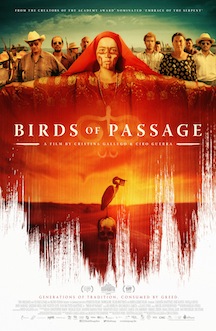Direction: Ciro Guerra
Country: USA / Italy
Visually impressive but limited in structure and emotionally sparse, Waiting for the Barbarians marks the return of Colombian director Ciro Guerra to the big screen after past cinematic accomplishments such as The Wind Journeys (2009), Embrace of the Serpent (2015) and Birds of Passage (2018). The film is an adaptation of the 1980 novel of the same name by South African J.M. Coetzee, who also wrote the script.
Mark Rylance is a Magistrate in charge of an isolated frontier outpost located in the desert. Although, he and his soldiers are in peace with the local nomadic clans - condescendingly called ‘barbarians’ - the so called Empire, to which they belong, sends a ruthless torturer and former policeman, Colonel Joll (a cold Johnny Depp gazing behind round sunglasses), to interrogate a man and his young nephew who had been detained for a minor infraction. His harrowing methods and cruelty shock the Magistrate, who refuses to be part of it. The tension builds up and things only get worse when the latter decides to help a nearly blind nomad girl with broken ankles (Mongolian model Gana Bayarsaikhan).
Our hero has the noble integrity of the old classics’ characters, trying to balance the inhumane torture inflicted by others with gentle and compassionate gestures. There’s heart in this fierce and serious tale, but it’s also true that most of its episodes lack the drama that would turn it into the epic envisioned by Guerra in what is his first English-language film.
It strikes me as an anti-torture, anti-supremacy statement that laments at the mysteries of cruel human behavior. Yet, on the other hand, it can’t get rid of a certain disharmony between the denouncements at the center (conspiracy theories inclusive) and how things develop and connect within the film. It’s an impaired parable that still stirs some reaction.





